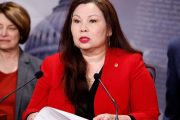
GD Culture Group, a little-known tech firm with deep ties to China, announced plans to acquire $300 million worth of Bitcoin and $TRUMP — the meme cryptocurrency launched by Donald Trump just days before his inauguration.
The company claims the deal will strengthen its balance sheet with “high-performance, scalable digital assets.” But the move isn’t just bold — it’s opaque. According to filings, the funds came from a stock sale to an undisclosed entity in the British Virgin Islands, a jurisdiction built to obscure ownership and facilitate murky flows of capital. GD Culture hasn’t disclosed how much of the purchase went to Bitcoin versus Trump’s personal coin.
The firm reported zero revenue in 2024, and now faces potential NASDAQ delisting. The timing of the investment — as Trump-linked crypto assets become a magnet for offshore wealth — has only deepened alarm over the merging of political power and borderless digital finance.
GD Culture Group
GD Culture Group Limited is a U.S.-registered holding company based in New York, operating primarily through its subsidiary AI Catalysis Corp. The company develops AI-powered “virtual digital humans” — photorealistic avatars with lifelike speech, expressions, and movement — for use in livestreaming, e-commerce, and social media marketing. The technology, driven by natural language processing and machine learning, targets small and mid-sized businesses looking to boost online engagement.
Alongside this, GD Culture is building a livestreaming e-commerce business on TikTok, combining curated product offerings with interactive short-form video content. It is also expanding into real-time interactive games, where viewers can participate during livestreams. Future plans include deploying AI-generated digital hosts to run content 24/7.
China Ties
GD Culture Group’s operational and leadership ties to China are extensive.
Its key subsidiary, Shanghai Xianzhui Technology Co., Ltd., is incorporated in China. GD Culture holds a majority stake through Shanghai Highlight, another China-based affiliate.
The company’s executive team reinforces this connection. All senior leaders have Chinese backgrounds and professional histories in Chinese financial institutions, government-linked enterprises, or academia.
CEO Xiaojian Wang worked at China Minsheng Bank and later led business development at a Vancouver firm.
CFO Zihao Zhao audited for PwC (PricewaterhouseCoopers) Shanghai and studied taxation in China.
COO Lu Cai runs a Chinese IPO advisory firm and held VP roles at Beijing consultancies.
Shuaiheng Zhang, Audit Committee chair, held top roles at SEG and Sunwoda. Both are listed on the Shenzhen Stock Exchange in strategic sectors.
Yun Zhang, Corporate Governance Committee chair, consults for China Machinery Engineering Corporation, a state-owned firm.
Lei Zhang, Compensation Committee chair, teaches in Canada but maintains strong academic ties to China.
The composition of the leadership team is no accident. It reflects a structure deeply rooted in China’s commercial and state-linked ecosystem.
While no director is confirmed to be a Chinese Communist Party official, China’s 2017 National Intelligence Law mandates that citizens and companies cooperate with state intelligence efforts when asked. That is a critical consideration when politically sensitive U.S. assets like Trump-linked cryptocurrency are involved.
Middle Eastern Capital
GD Culture’s crypto splash arrives just as foreign money floods into Trump-affiliated digital ventures.
Last week, MGX, a state-backed investment firm from the United Arab Emirates, committed $2 billion to Binance, the world’s largest crypto exchange. The deal was done entirely in USD1, a stablecoin issued by World Liberty Financial (WLF).
According to its website, WLF is majority-owned by DT Marks DEFI LLC, an entity controlled by Donald Trump and his family. They hold 60 percent of WLF’s equity and control 22.5 billion $WLFI tokens, the firm’s native crypto. Under a service agreement, DT Marks collects 75 percent of net revenue from token sales.
Put simply: The Trump family is extracting massive profits from a stablecoin funneling foreign capital into their crypto empire.
The $2 billion MGX-Binance deal, carried out entirely in WLF’s USD1 coin, marked a new political-financial model in which a sitting U.S. president profits directly from opaque, cross-border capital flows. Legal? Probably. Blatantly transactional? Absolutely.
And the optics? President Trump channeling billions from a Gulf monarchy through his crypto venture makes the Biden family’s influence-peddling that allegedly enriched them by $27 million look amateur by comparison.
The $TRUMP Coin Dinner
If the MGX deal exposed the global scale of Trump’s crypto ecosystem, the $TRUMP coin dinner made it personal.
Shortly after launching the token, President Trump made an offer. The top 220 holders of $TRUMP would be invited to a black-tie-optional dinner at his golf course outside Washington, D.C. That would be followed by a private tour of the White House. The top 25 wallets would gain access to a closed-door reception with the president himself.
Unlike PAC fundraisers, this crypto-based contest wasn’t restricted by U.S. campaign finance law. The results were predictable: Foreign wallets dominated the leaderboard. Bloomberg reported that 19 of the top 25 participants were almost certainly based outside the United States.
At the top sat Justin Sun, the Hong Kong-based crypto mogul, with roughly $18.6 million in $TRUMP, including $4.5 million acquired after the dinner announcement. Not far behind was Singapore’s MemeCore, which declared a symbolic $18 million buy-in and openly campaigned to reach the top.
And while the blockchain may be transparent, the guest list isn’t. Wallets with names like Booblino, Smooth Operator, and GiantBabyCorn made the cut. Thanks to a glitch, 17 wallets with zero $TRUMP coins at the time of tally still qualified. That included one user who appears to have spent just $1.
Trump’s Embrace of Digital Currency
Donald Trump has positioned himself as a defender of financial privacy. In January, he signed Executive Order 14178, which prohibits the development of a central bank digital currency (CBDC) in the U.S.
Instead, Trump wants to see private cryptocurrencies flourish. He has proposed creating a national reserve of decentralized assets — including Bitcoin and Ethereum — to bolster American dominance in the global financial system.
His team argues this approach resists centralized control and promotes innovation. But it also opens the door for private actors, especially those with political connections, to wield outsized power in the digital currency space. As investment expert Catherine Austin Fitts recently noted, both CBDCs and privately issued digital coins pose a serious threat to financial freedom. Yet within the framework of American law, she warned, private digital currencies may be even more dangerous. That is because unlike the Federal Reserve (which, without question, needs to be dismantled), issuers of digital currencies are not accountable to Congress or bound by public oversight. Fitts emphasized that the real question, however, isn’t whether central bank digital currencies or privately issued ones are better. It’s a choice between digital money — which can be surveilled and programmed — and analog money, which cannot.
The Trump-aligned crypto surge isn’t happening in a vacuum. It’s backed by insiders with deep ties to finance and tech, as reported by The New American in late March.





